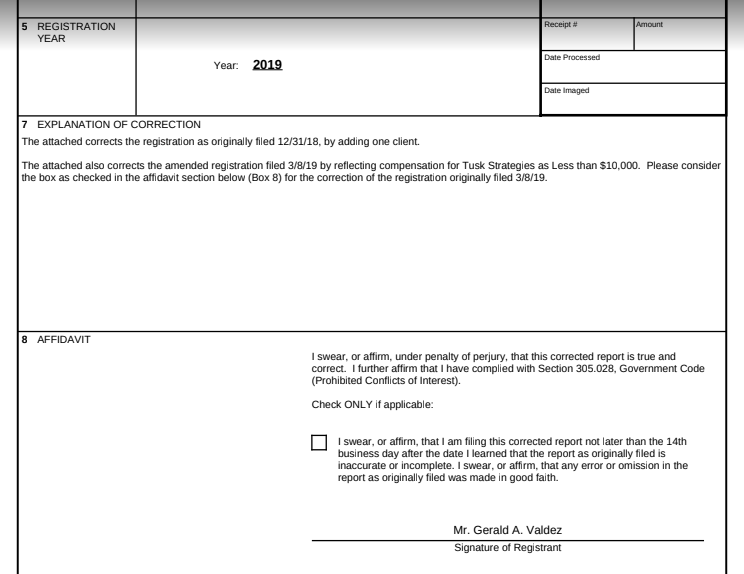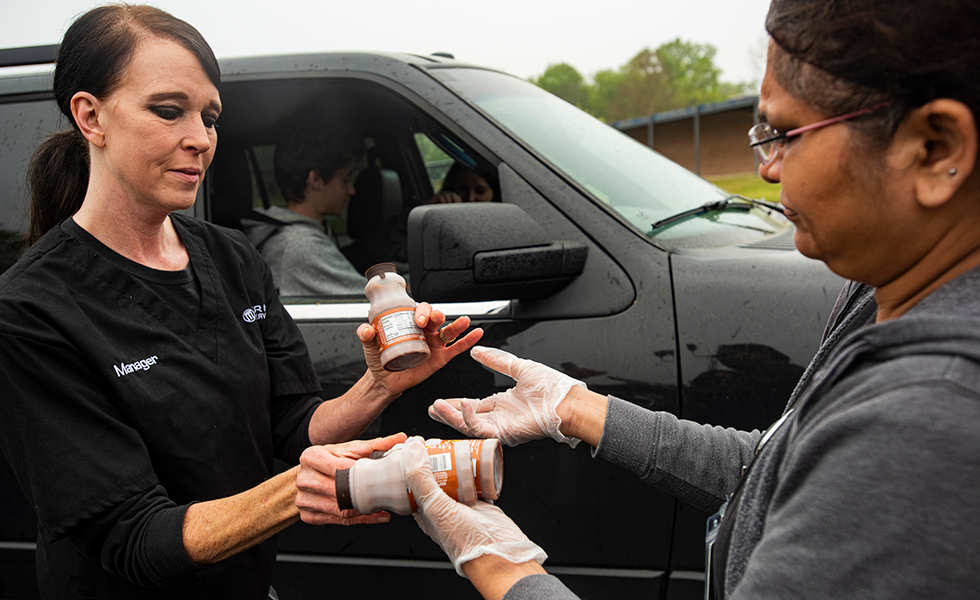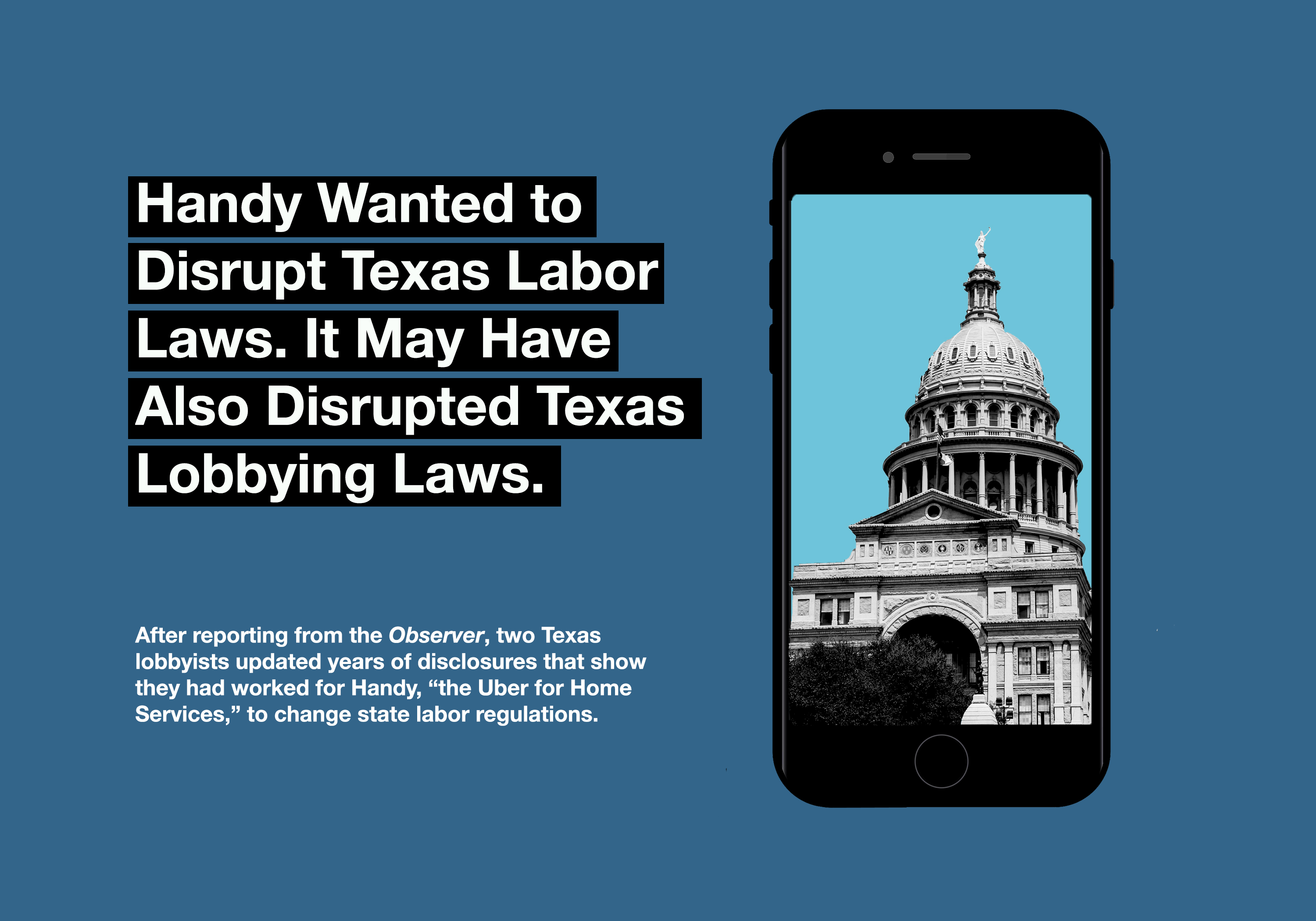
by Justin Miller
April 3, 2019
Silicon Valley startups fancy themselves bold disruptors of the status quo. As the mantra goes: Move fast and break things. But for Handy, a company vying to become the “Uber for home services,” that may have included its lobbyists breaking Texas’ ethics laws, according to experts on lobbying disclosure rules.
As the Observer first reported last week, recently released public records show that Handy, its high-powered political fixer Tusk Strategies and two Austin lobbyists worked in tandem to directly coordinate with the chair of the Texas Workforce Commission (TWC) to rewrite the state’s labor rules. The change, now in the final stages, would be highly valuable for Handy and other app-based companies by letting them off the hook for providing employee benefits.

But the public and elected officials were kept in the dark about Handy’s direct role in drafting the rule for well over a year. That’s because the two lobbyists working for the New York-based cleaning and maintenance company, Jerry Valdez and Mackenna Wehmeyer, didn’t disclose Handy as a client in lobbyist registrations for three years, as required by state law. The commission also initially denied using outside sources. Only after the lobbyists’ work for Handy was reported by the Observer did they finally disclose Handy as a client.
Following the public revelations last month, Handy, Tusk and a spokesperson for the Texas Workforce Commission all explicitly denied they did anything wrong. Meanwhile, the lobbyist at the center of it all, Valdez, has maintained radio silence despite multiple attempts by the Observer to contact him through different channels.

In 2017, Handy hired Valdez, a well-connected Austin lobbyist who has run his own firm, Jerry Valdez Governmental Affairs, LLC, for more than 15 years. Emails obtained by the Observer show Valdez had directly lobbied TWC Chair Ruth Hughs on behalf of the company, beginning at least in December 2017. He brought on Wehmeyer to help in 2018. Neither of the lobbyists disclosed Handy as a client at the time.
On March 28, Valdez finally added Handy to his client disclosures for 2017, 2018 and 2019. He also reported that he earned up to $120,000 for his clandestine efforts. Wehmeyer amended her 2018 and 2019 registrations at the same time to include Handy, and reportedly earned as much as $10,000 each year.
(Valdez and Wehmeyer didn’t respond to requests for comment.)
Along with his amended filing, Valdez also cut a check, without solicitation, for $1,500 in fines — $500 for each of his late disclosures — perhaps in an effort to pre-empt further consequences. Wehmeyer also paid $1,500 in fines that hadn’t been levied.
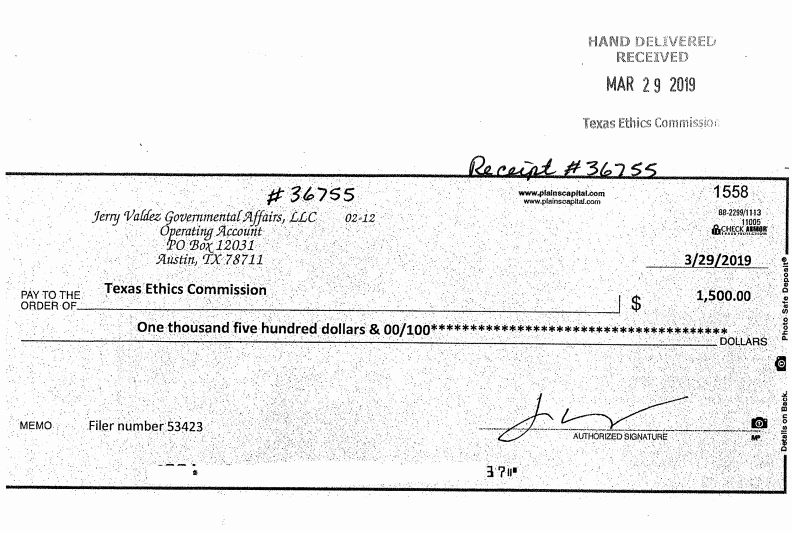
But experts say the potential violations are far more serious than just late filings. Knowingly failing to disclose their work for Handy is a breach of state ethics law that requires lobbyists to register and regularly disclose their clients, and could result in steep fines and even criminal prosecution, according to experts. “This doesn’t sound like there’s a lot of defense to this,” said Randall “Buck” Wood, a longtime lawyer and expert on Texas lobbying and disclosure laws. “I think they were simply getting away with it and they thought that was a neat thing to do.”

Handy said it did nothing wrong. “Handy has never indicated to anyone that its policy efforts be kept hidden; on the contrary, we’ve fought publicly for years on behalf of policies that would create benefits and training designed for independent workers. We expect anyone lobbying on our behalf to always follow all applicable laws and our work in Texas is no exception,” a representative for the company said in a statement.
The Texas Ethics Commission, which enforces state lobbying and campaign finance laws, could investigate Handy’s lobbyists. If the agency determines that Valdez and Wehmeyer intentionally concealed their work for the company, the lobbyists could face serious legal consequences.
“It could be a fairly significant fine and it could be turned over to the local prosecutors,” Wood said. “I think that they would consider it. It’s pretty gross.” If the commission finds that a lobbyist failed to register, it can levy a civil fine of up to three times the amount that they were compensated. A lobbyist who “intentionally or knowingly violates” state lobbying law could also face a Class A misdemeanor — if the county attorney’s office in Travis County decided to prosecute.
Documents released through an open records request by the Workers Defense Project show Valdez and Wehmeyer serving as conduits for Handy, and in tandem with Tusk Strategies, which Handy has used to orchestrate a legislative blitzkrieg to enact similar “marketplace contractor” laws in seven other states. Texas was the company’s latest target and seemingly the first state where it opted to pursue a change through a regulatory agency. Emails show Valdez and Wehmeyer passing along legal advice and arranging conference calls between Tusk staff and Hughs’ office.

After TWC tentatively approved the rule at a December meeting and people started paying attention, Valdez and Wehmeyer added Tusk Strategies to their client lists when they registered with the Texas Ethics Commission to lobby in 2019. After months of the Observer’s inquiries going unanswered, Tusk Strategies emerged on March 28, the day Valdez updated his disclosures to include Handy, to claim that Valdez and Wehmeyer never worked for its firm. When Tusk Strategies discovered that Valdez marked the firm as a client in January, it said it told Valdez to correct his filing. Valdez removed Tusk on March 11.

“There was never any effort to avoid compliance with any registration rules, and we are certain that if any required registrations by Mr. Valdez or Ms. Wehmeyer were not filed, it was completely inadvertent,” a Tusk spokesperson told the Observer in a statement last week. “The suggestion that there was a concerted effort to skirt any registration requirements is completely false.” Valdez may have accidentally registered Tusk as a client, the firm said, because “we were his primary point of contact.”
Valdez first began lobbying in Texas in the early 2000s. Before that, he worked for the Texas Department of Economic Development under then-Executive Director Jeff Moseley. In 2018, he ran the Texas Association of Business PAC, where Moseley had recently become CEO. The powerful business group has been a vocal ally of gig employers and worked closely with Uber to pass a pro-rideshare law in 2017. The group also filed a public comment to the Texas Workforce Commission regarding the Handy-backed rule, according to a spokesperson. The group does not disclose its members and the spokesperson declined to say whether it ever consulted with Handy about how to advance policy in Texas.
Watchdogs say experienced lobbyists who run their own firms are usually well-versed on the state’s lobbying statutes and regulations, but may also know how rare it is for a lobbyist to be caught red-handed violating the law.
“People play games fast and furious with disclosure laws with the assumption that they won’t get caught,” said Andrew Wheat, research director for the political transparency group Texans for Public Justice. “That’s a pretty safe assumption.”
Meanwhile, labor advocates — along with at least one Texas lawmaker — are demanding that the commission retract the proposed rule, which will be considered and could be approved at the commissioners’ meeting Tuesday.

One looming question is whether Hughs’ and her staff knew that Handy was lobbying without public disclosure, and if so, were complicit in a potentially illegal lobbying operation that protected Handy from public scrutiny.
TWC’s Communications Director Lisa Givens denies those allegations, saying that “at no time” has the agency “concealed or intentionally misstated information.”
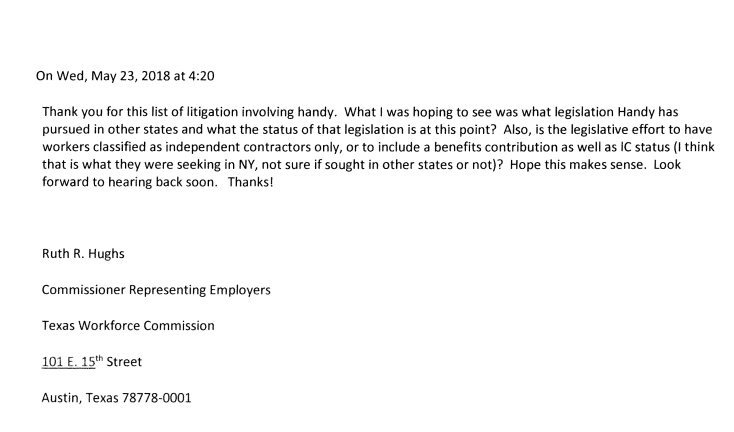
Givens said that it’s not the responsibility of commissioners and staff to verify that lobbyists are properly registered. Did Hughs or her staff ever learn that Valdez and Wehmeyer weren’t registered to lobby for Handy? “Chair Hughs and her staff are not aware whether or not Valdez or Wehmeyer met all of their disclosure requirements under law and rule, as regulated by the Texas Ethics Commission.” Givens has repeatedly declined to make Hughs available for an interview. On Tuesday, Hughs participated in an on-camera panel interview about public education with the Texas Tribune, but the issue did not come up.
Representative Ramon Romero, a Fort Worth Democrat, sent a formal letter to Hughs last week, pressing her for more information. He has not received a response. Revelations that lobbyists were secretly pushing policy in a state agency “scares the hell out of me. It should scare the hell out of every Texan out here,” Romero said. “They are given permission to lobby in Texas. And to break the rules is something that should be inexcusable.”
Lobbyists are required to sign an affidavit when filing amendments. As the form dictates, “Check ONLY if applicable.” Below is a box, and a statement affirming that any error or omission in the original report was made in “good faith.” Valdez left his box unchecked.
